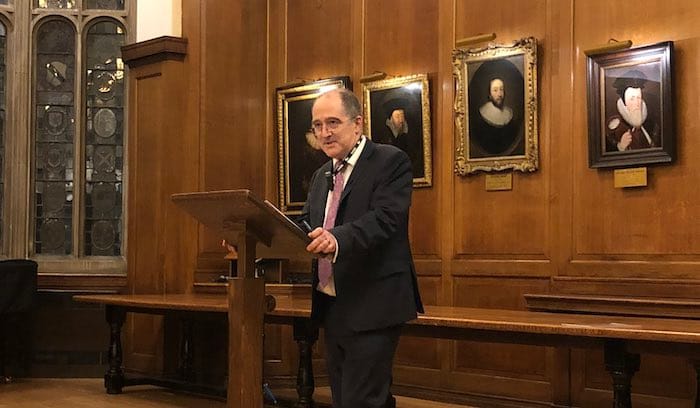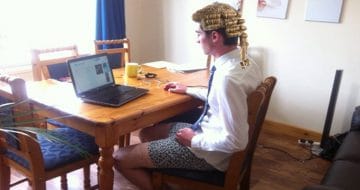WhatsApp groups no substitute for chambers camaraderie

The incoming chair of the Bar Council said last night that the profession owes pupil and junior barristers a “duty” to re-think the training and support they receive in their early years.
In his inaugural speech delivered at Gray’s Inn, Mark Fenhalls QC touched on a range of topics impacting the bar, such as legal aid, diversity, court capacity and backlogs, as well as culture in the context of the coronavirus pandemic.
“We owe our pupils and junior tenants a duty to think again about their training, and how we support them in their early years,” he said. “Many of us have done our best to help our recent intakes with WhatsApp groups and the like; but it is just not as good. We must ask ourselves how we can recreate that sense of chambers where you could walk in, find people, and knock on any open door.”
Fenhalls acknowledged in his address that “there are no easy answers” and “the challenge only grows because the average age of pupils approaches 30 and the average barrister is now approaching 50”.
He continued:
“I suspect a common theme will be the need to recognise that spontaneity will not work. There is little point dropping in to chambers as one might have done not so long ago, expecting to bump into any number of friends to have lunch, a cup of tea, or an early evening drink. I think we are all going to have to be a lot more organised if we want the culture of the bar to survive.”
The Bar Council examined the impacted of Covid-19 on the junior end of the profession in research earlier this year.
The overwhelming majority (82%) of pupil barristers said the biggest challenge they faced is the lack of networking opportunities as a result of the lockdowns and move to remote ways of working. Other areas of concern highlighted in the Bar Council’s survey of pupils in March 2021 included interruption to court work (55%) and a lack of contact with pupil supervisors (51%).
Pupils said at the time that they wanted more contact with their pupil supervisors as well as other members of chambers, regular tea/coffee mornings and more exposure to court or remote hearings.
It’s not just junior barristers that are feeling the pressures of the pandemic, as reports last year showed bar students struggled with remote teaching and assessments.
Fenhalls was formerly chair of the Criminal Bar Association and practises from 23 Essex Street Chambers. He replaces Derek Sweeting QC as chair of the Bar Council next year.


